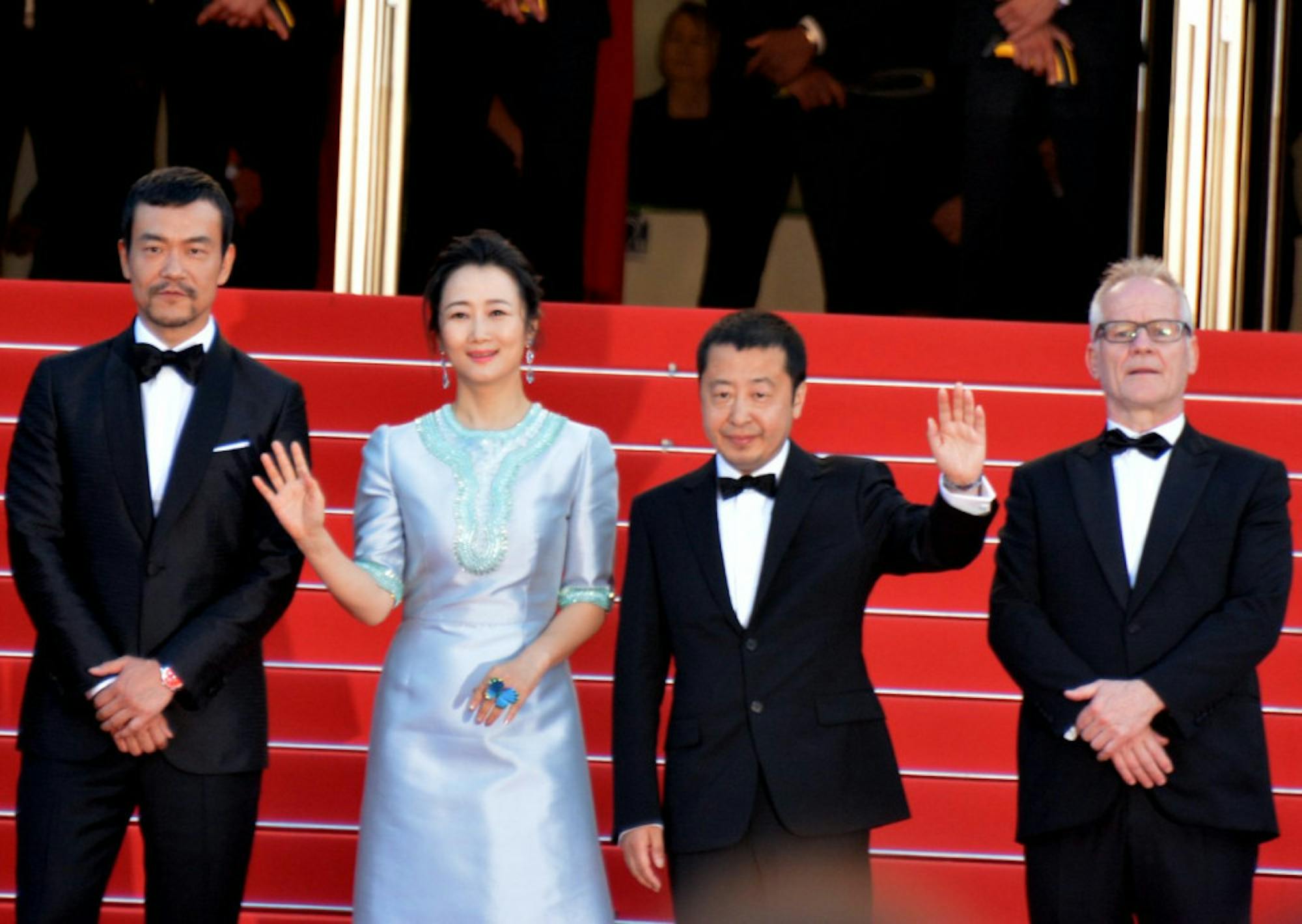Let's talk about righteousness. It is the prevailing idea of Zhangke Jia’s newest gangster film, “Ash is Purest White" (2018). Part love story, part crime drama, part political rumination, this film follows the relationship of crime lord Bin (Fan Liao) and his girlfriend Qiao (Tao Zhao) from the early 2000s to the present.
“Ash is Purest White” begins like any good gangster flick — a young couple on top of a crooked world thick with cigarette smoke. In mahjong rooms and dance halls, the “jianghu,” roughly translating to “gangsters,” assert their power and live in luxury. But when power skirmishes result in Bin getting targeted by rival gangs, things get ugly. Qiao takes a fall, both end up in jail, and five years later Qiao runs back into the world, eagerly awaiting Bin — only he’s nowhere to be found. The following years see Qiao learning to hustle and live life on her own, though she is stuck in a continual, cyclic chase with Bin.
In the early years, we hear that the price of coal is dropping rapidly in Datong, but Bin isn’t worried. He assures her that the land is theirs for the taking. But economic tensions rise, and soon after comes the Three Gorges Dam project in the Hubei province, a government initiative that would dramatically change Chinese infrastructure and even displace citizens in its way to build the world’s largest power station. After her release from jail in the river town of Fengjie, Qiao could settle somewhere in the north, but she wonders what would be waiting for her. In one surreal sequence, she gets on a train down the Yangtze River and meets a man who runs his own tourism service for UFO sightings in Xinjiang. She and the man both lie to each other and consider running off together to a life of mediocrity. Qiao seems to be the image of prudence when she leaves him behind, until she sees a strange object lighting up the sky. Qiao looks for an escape beyond both the injustice from Bin and the economic failures of the Chinese government.
She finds it in the “jianghu” again. As movie reviewer Glenn Kenny points out, the “jianghu” is “untranslatable… it means not just ‘gangster’ or something like it; it connotes a particular code of ethics.” This code of ethics is all she has and all she knows. But as Bin loses his loyalty he is left with nothing but an attachment (and debt) to Qiao. Both of their paths are tragic, and neither quite adapts to the changing world around them. Yet the film asks, what are the options for poor youth in Datong? What did labor camps do for Qiao? What will happen to the coal industry? Is technology what’s changing China? Are its volcanoes still active?
“Ash is Purest White” was a Chinese-French collaboration, and much of the film has a French New Wave quality. Even though it jumps forward by years at a time, it is paced slowly. The dialogue between lovers is deliberate and filled with tender close-ups. The scenes between the Qiao and Bin alone are some of the best in the whole film, and Tao and Fan’s powerful acting forms a fantastic, doomed chemistry. It would not be at all surprising if the film were filled with enigmatic or incendiary inner references to political or cultural markers of the early 21st century, but this reviewer and fellow American audiences will struggle to identify them. Nevertheless, “Ash is Purest White” is an indeed pure, and often challenging, statement on love and self-determination.
'Ash is Purest White' is a tender enigmatic tale of loyalty, change

Cast members of 'Ash is the Purest White' (2018) are pictured at the 2018 Cannes Film Festival.
Summary
'Ash is Purest White' is a moving, tragic and complex testament tale of love and crime in a changing world.
4.5 Stars





